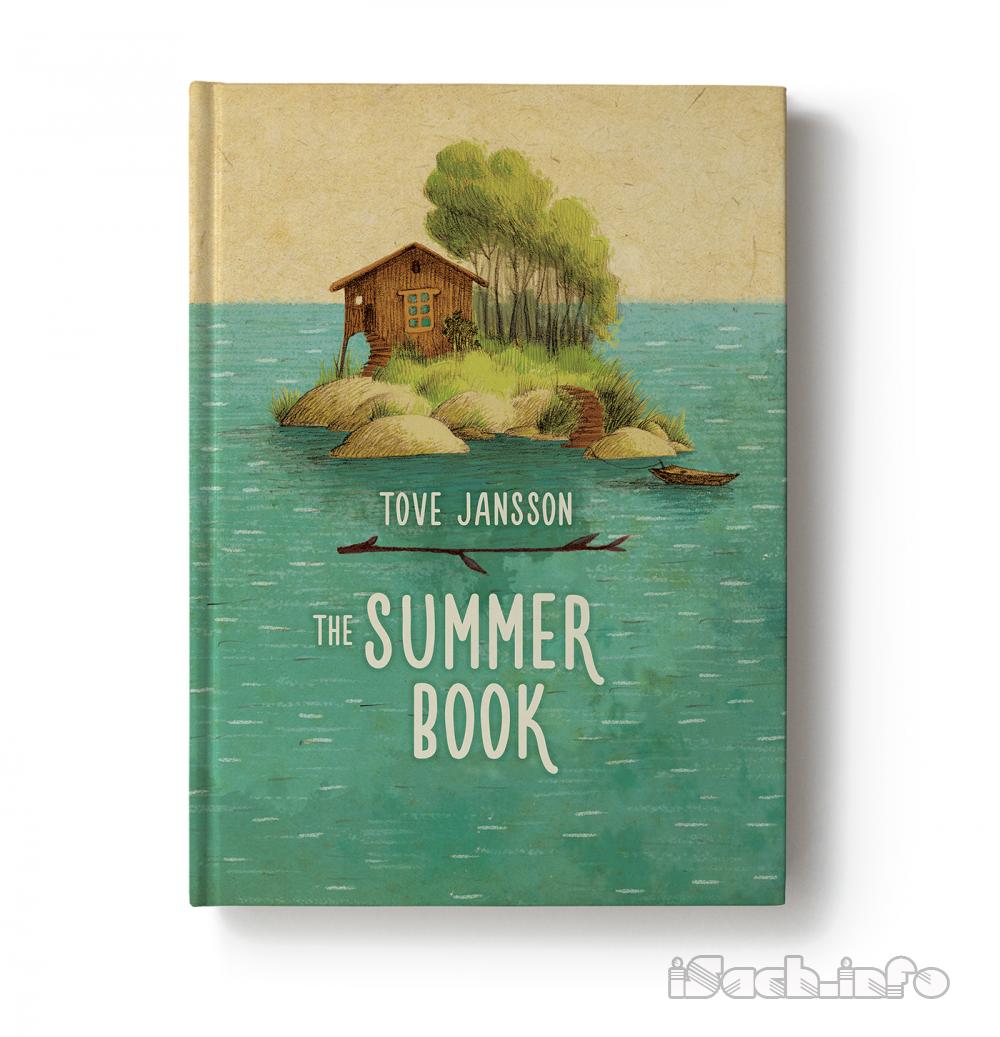Chapter 9: The Cat
I
T WAS a tiny kitten when it came and could drink its milk only from a nipple. Fortunately, they still had Sophia’s baby bottle in the attic. In the beginning, the kitten slept in a tea cozy to keep warm, but when it found its legs they let it sleep in the cottage in Sophia’s bed. It had its own pillow, next to hers.It was a gray fisherman’s cat and it grew fast. One day, it left the cottage and moved into the house, where it spent its nights under the bed in the box where they kept the dirty dishes. It had odd ideas of its own even then. Sophia carried the cat back to the cottage and tried as hard as she could to ingratiate herself, but the more love she gave it, the quicker it fled back to the dish box. When the box got too full, the cat would howl and someone would have to wash the dishes. Its name was Ma Petite, but they called it Moppy.
“It’s funny about love,” Sophia said. “The more you love someone, the less he likes you back.”
“That’s very true,” Grandmother observed. “And so what do you do?”
“You go on loving,” said Sophia threateningly. “You love harder and harder.”
Her grandmother sighed and said nothing.
Moppy was carried around to all the pleasant places a cat might like, and he only glanced at them and walked away. He was flattened with hugs, endured them politely, and climbed back into the dish box. He was entrusted with burning secrets and merely averted his yellow gaze. Nothing in the world seemed to interest this cat but food and sleep.
“You know,” Sophia said, “sometimes I think I hate Moppy. I don’t have the strength to go on loving him, but I think about him all the time!”
Week after week, Sophia pursued the cat. She spoke softly and gave him comfort and understanding, and only a couple of times did she lose her patience and yell at him, or pull his tail. At such times Moppy would hiss and run under the house, and afterward his appetite was better and he slept even longer than usual, curled up in unapproachable softness with one paw daintily across his nose.Sophia stopped playing and started having nightmares. She couldn’t think about anything but this cat who refused to be affectionate. Meanwhile, Moppy grew into a lean and wild little animal, and one June night he didn’t come back to his dish box. In the morning, he walked into the house and stretched—front legs first, with his rear end up in the air—then he closed his eyes and sharpened his claws on the rocking chair, after which he jumped up on the bed and went to sleep. The cat’s whole being radiated calm superiority.
He’s started hunting, Grandmother thought.
She was right. The very next morning, the cat came in and placed a small grayish-yellow bird on the doorsill. Its neck had been deftly broken with one bite, and some bright red drops of blood lay prettily on the shiny coat of feathers. Sophia turned pale and stared fixedly at the murdered bird. She sidled past Moppy, the murderer, with small, forced steps, and then turned and rushed out.
Later, Grandmother remarked on the curious fact that wild animals, cats for example, cannot understand the difference between a rat and a bird.
“Then they’re dumb!” said Sophia curtly. “Rats are hideous, and birds are nice. I don’t think I’ll talk to Moppy for three days.” And she stopped talking to her cat.
Every night, the cat went into the woods, and every morning it killed its prey and carried it into the house to be admired, and every morning the bird was thrown into the sea. A little while later, Sophia would appear outside the window and shout, “Can I come in? Have you taken out the body?” She punished Moppy and increased her own pain by means of a terrible coarseness. “Have you cleaned up the blood?” she would yell, or, “How many murdered today?” And morning coffee was no longer what it had been.
It was a great relief when Moppy finally learned to conceal his crimes. It is one thing to see a pool of blood and quite another thing only to know about it. Moppy probably grew tired of all the screaming and fussing, and perhaps he thought the family ate his birds. One morning when Grandmother was taking her first cigarette on the veranda, she dropped her holder and it rolled through a crack in the floor. She managed to raise one of the planks, and there was Moppy’s handiwork—a row of small bird skeletons, all picked clean. Of course she knew that the cat had continued to hunt, and could not have stopped, but the next time he rubbed against her leg as he passed, she drew away and whispered, “You sly bastard.” The cat dish stood, untouched, by the steps and attracted flies.
“You know what?” Sophia said. “I wish Moppy had never been born. Or else that I’d never been born. That would have been better.”
“So you’re still not speaking to each other?” Grandmother asked.
“Not a word,” Sophia said. “I don’t know what to do. And if I do forgive him—what fun is that when he doesn’t even care?” Grandmother couldn’t think of anything to say.
Moppy turned wild and rarely came into the house. He was the same color as the island—a light yellowish-gray with striped shadings like granite, or like sunlight on a sand bottom. When he slipped across the meadow by the beach, his progress was like a stroke of wind through the grass. He would watch for hours in the thicket, a motionless silhouette, two pointed ears against the sunset, and then suddenly vanish... and some bird would chirp, just once. He would slink under the creeping pines, soaked by the rain and lean as a streak, and he would wash himself voluptuously when the sun came out. He was an absolutely happy cat, but he didn’t share with anyone. On hot days, he would roll on the smooth rock, and sometimes he would eat grass and calmly vomit his own hair the way cats do. And what he did between times no one knew.One Saturday, the Övergårds came for coffee. Sophia went down to look at their boat. It was big, full of bags and jerry cans and baskets, and in one of the baskets a cat was meowing. Sophia lifted the lid and the cat licked her hand. It was a big, white cat with a broad face. It kept right on purring when she picked it up and carried it ashore.
“So you found the cat,” said Anna Övergård. “It’s a nice cat, but it’s not a mouser, so we thought we’d give it to some friends.”
Sophia sat on the bed with the heavy cat on her lap. It never stopped purring. It was soft and warm and submissive.
They struck a bargain easily, with a bottle of rum to close the deal. Moppy was captured and never knew what was happening until the Övergårds’ boat was on its way to town.
The new cat’s name was Fluff. It ate fish and liked to be petted. It moved into Sophia’s cottage and slept every night in her arms, and every morning it came in to morning coffee and slept some more in the bed beside the stove. If the sun was shining, it would roll on the warm granite.
“Not there!” Sophia yelled. “That’s Moppy’s place!” She carried the cat a little farther off, and it licked her on the nose and rolled obediently in the new spot.
The summer grew prettier and prettier, a long series of calm blue summer days. Every night, Fluff slept against Sophia’s cheek.
“It’s funny about me,” Sophia said. “I think nice weather gets to be boring.”
“Do you?” her grandmother said. “Then you’re just like your grandfather, he liked storms too.” But before she could say anything else about Grandfather, Sophia was gone.
And gradually the wind came up, sometime during the night, and by morning there was a regular southwester spitting foam all over the rocks.
“Wake up,” Sophia whispered. “Wake up, kitty, precious, there’s a storm.”
Fluff purred and stretched warm sleepy legs in all directions. The sheet was covered with cat hair.
“Get up!” Sophia shouted. “It’s a storm!” But the cat just turned over on its broad stomach. And suddenly Sophia was furious. She kicked open the door and threw the cat out in the wind and watched how it laid its ears back, and she screamed, “Hunt! Do something! Be like a cat!” And then she started to cry and ran to the guest room and banged on the door.
“What’s wrong now?” Grandmother said.
“I want Moppy back!” Sophia screamed.
“But you know how it’ll be,” Grandmother said.
“It’ll be awful,” said Sophia gravely. “But it’s Moppy I love.”
And so they traded cats again.



 ePub
ePub A4
A4